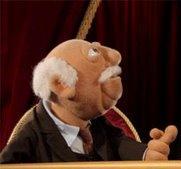about A British-led Anglosphere in world politics?. "Anglosphere" is a word slowly gaining in usage and the concept seems very appealing. As O'Sullivan notes:
If you want to know which countries the British feel really close to, check which ones they telephone on Christmas Day (Australia, Canada, New Zealand, America... but you knew that).Indeed. I do a lot of selling on eBay and it is very telling where my overseas sales go - by far and away most go to the USA, Australia, Canada, Ireland and New Zealand. The cultural connections of the Anglosphere are never far away - just look at this week's Doctor Who, set on a vessel mimicking a trans Atlantic liner and co-starring a popular Australian singer and actress. And it was the second highest watched show of the week. The UK's culture has many external influences and look where they come from.
Politically it's similar as shown by the pattern of alliances and friendships. Nor are the links rooted through a single country:
The idea, lagging well behind the reality, is now seeping into politics. Last year Canada's prime minister, Stephen Harper, delivered an eloquent speech to the Australian parliament that praised the common British heritage linking both nations.Too often those who've talked about the Anglosphere in the past have been accused of being reactionaries dreaming of the old days of Empire. The idea that Manmohan Singh fits that bill is plain absurd. There are ties in so many fields - family, culture, business, politics and so many more - that reinforce the bonds between the nations of the Anglosphere. Why not take the next bold step and reinforce those ties on the world stage as a force for good? The idea is gaining more and more credibility:
Even more significantly India's PM, Manmohan Singh, gave a speech at Oxford in 2005 that neatly stole the entire concept for New Delhi: "If there is one phenomenon on which the sun cannot set, it is the world of the English-speaking peoples, in which the people of Indian origin are the largest single component."
That raises a painful question. If Australians, Indians, Canadians, and even Americans can recognise the Anglosphere as a new factor in world politics, why is it something from which the Brits themselves shy?
Its academic foundations are rooted in work demonstrating that England always had a more individualist culture than continental Europe, that the "civil society" tools of this culture were transmitted to the colonies settled from England, and that those countries have since not only prospered unusually, but also established a world civilisation rooted in liberalism.So is now perhaps the time to take the plunge?
Bennett in The Anglosphere Challenge makes unmistakably clear that it is English cultural traits - individualism, rule of law, honouring contracts, and the elevation of freedom - rather than English genes that explain this success.
These traits enable a society to pull off the difficult trick of combining trust with openness. Nations with different genetic backgrounds that adopt such traits seem to prosper more than their similar neighbours. Hence the Anglosphere includes India and the West Indies, as well as the "old Commonwealth".
















